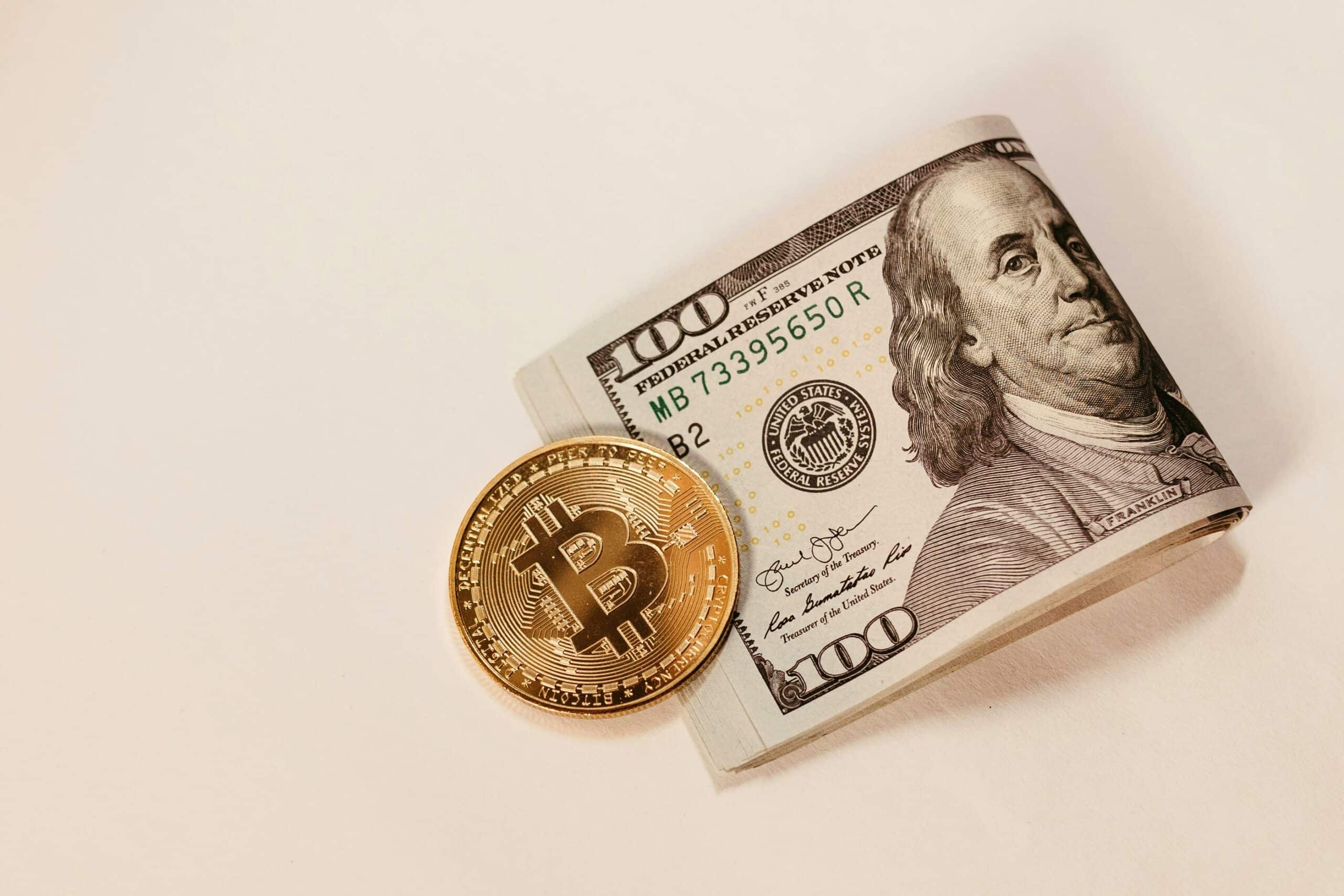Coinbase stands out among crypto exchanges by making digital currencies clear and accessible to millions since 2012. It’s not just about Bitcoin anymore; Coinbase brings a whole range of cryptocurrencies to over 56 million users worldwide. What sets it apart? It is a straightforward, easy-to-use platform and a solid focus on following the rules and keeping things secure. Let’s dive into what makes Coinbase a trusted name in the crypto game.
Table of Contents
Coinbase at a Glance
Coinbase’s story began with a simple yet ambitious goal: make Bitcoin accessible to everyone. Fast forward to today, and it’s clear that Coinbase has far exceeded this initial aim, and evolved into a comprehensive platform for many cryptocurrencies. Its significant leap to being listed on the Nasdaq stock exchange under the ticker COIN marked a milestone, not just for Coinbase but for the cryptocurrency world at large — showcasing the potential for digital currencies to play in the mainstream financial landscape.
The Legal Legitimacy of Coinbase
Now, let’s take a closer look at how Coinbase stands up from a legal perspective, ensuring it’s not just another crypto exchange but a platform that’s built its foundation on solid legal ground.
Regulatory Compliance
The backbone of Coinbase’s operation is its staunch adherence to regulatory compliance. By rigorously implementing Know Your Customer (KYC) and Anti-Money Laundering (AML) regulations, Coinbase ensures a secure and transparent trading environment. These measures are crucial for deterring and detecting illicit activities, making Coinbase a platform where users can trade with peace of mind.
Coinbase’s commitment to following Securities and Exchange Commission (SEC) regulations further solidifies its position as a trustworthy platform. Operating under the watchful eye of one of the most stringent financial regulatory bodies in the world, Coinbase offers an added layer of security and legitimacy to its users, ensuring that their investments are in safe hands.
Licensing and Operation in the US
Coinbase’s legal standing is further bolstered by its acquisition of operational licenses across various states in the U.S. These are a testament to Coinbase’s dedication to meeting and exceeding the high standards expected by regulatory authorities. This commitment also ensures that Coinbase operates transparently and responsibly, prioritising the protection of its users’ interests.
The comprehensive legal framework that governs Coinbase’s operations is designed to protect users and promote fair trading practices. Navigating these complex regulations is no small feat, but Coinbase’s efforts to do so successfully clearly indicate its legitimacy and reliability as a cryptocurrency exchange.
Insurance and User Protection
In a move that sets it apart from many competitors, Coinbase has taken proactive steps to insure user deposits. This decision, although not mandated by regulators, underscores Coinbase’s commitment to user security and trust. The insurance coverage provides a safety net for users, offering reassurance that, in the unlikely event of a security breach, there is a mechanism in place to compensate affected individuals.
This proactive approach to insurance and user protection indicates Coinbase’s broader commitment to security and trustworthiness. By going above and beyond to safeguard its users’ assets, Coinbase enhances its legitimacy and contributes to the broader perception of cryptocurrency as a secure and viable financial asset.
As we shift our focus from the legal underpinnings to the technical safeguards that Coinbase employs, it becomes evident that the platform’s legitimacy is built on a foundation of not just legal compliance but also technological innovation and security. The following section will explore how Coinbase’s technical infrastructure supports its secure and efficient operation, further reinforcing its status as a leader in the cryptocurrency exchange market.
The Technical Legitimacy of Coinbase
Coinbase’s reputation as a secure platform doesn’t just stem from its legal compliance; it’s also deeply rooted in the robust technical measures it employs. Let’s explore the specifics of these measures and how they fortify Coinbase against potential threats.
Security Measures
At the forefront of Coinbase’s security strategy is a multi-layered approach designed to safeguard user assets and data meticulously. Two-factor authentication (2FA) is mandatory, providing an additional security layer beyond just the password. This means that even if a password were compromised, unauthorised access to an account would still be effectively blocked without the second verification step.
Cold storage plays a critical role in how Coinbase manages the vast majority of its digital assets. By storing 98% of funds offline, away from the reach of online hackers, Coinbase significantly reduces the risk of large-scale thefts. This approach is complemented by sophisticated encryption methods that protect sensitive user information both in transit and at rest, ensuring that personal and financial data remains secure.
Handling of Security Breaches
No platform is immune to threats, and Coinbase has had its share of challenges. However, it’s the response to these incidents that truly tests a platform’s commitment to security. In past breaches, here’s how Coinbase has addressed specific security breaches, demonstrating its commitment to user safety and industry standards:
- 2021 SMS Account Recovery Flaw: Hackers exploited a vulnerability in Coinbase’s SMS account recovery process, gaining unauthorised access to approximately 6,000 accounts. Coinbase’s response was swift, patching the vulnerability and fully reimbursing the affected users, showcasing their commitment to user security and financial integrity.
- Phishing Attack on Employees (2023): In a sophisticated attempt to breach Coinbase’s systems, cybercriminals targeted Coinbase employees with a phishing attack. The security team quickly identified and thwarted the attempt, preventing any compromise of customer data. Coinbase conducted a thorough investigation and shared valuable insights from the incident, emphasising the importance of vigilance and ongoing security enhancements.
These instances illustrate Coinbase’s approach to security: immediate action to rectify vulnerabilities, financial restitution for affected users, and a commitment to transparency by openly discussing the incidents.
Innovation and Technical Infrastructure
Coinbase’s approach to maintaining a secure and efficient trading platform is underpinned by its advanced technical infrastructure and continuous innovation in security technologies. Here’s a closer look at the key components and initiatives that highlight Coinbase’s dedication to innovation and security:
- Robust backend systems
- Blockchain analytics
- Advanced monitoring systems
- Cold storage of assets
- Encryption technologies
- Two-factor authentication (2FA)
- User education programs
Through these detailed measures and initiatives, Coinbase secures its platform against existing threats and also positions itself to adapt to and counter future security challenges. This commitment to innovation and the use of advanced technologies are central to Coinbase’s efforts to provide a safe, efficient, and trustworthy trading environment for its users.
Challenges and Controversies
Despite its many strengths, Coinbase has faced its share of criticisms, which have sparked discussions about its overall legitimacy.
Customer Service Issues
One of the most common criticisms of Coinbase concerns its customer service. Users have reported difficulties in reaching support and slow response times, especially during periods of high demand. These service issues can be frustrating for users, particularly those new to cryptocurrency or facing urgent issues.
High Transaction Fees
Another point of contention is Coinbase’s fee structure, which is often higher than some of its competitors. While these fees are justified by the platform’s security measures, user-friendly interface, and range of services, they can deter users looking for the most cost-effective trading options.
Addressing the Challenges
Coinbase has acknowledged these challenges and is taking steps to address them. The platform has been working to improve its customer service by expanding its support team and enhancing its support channels. On the issue of fees, Coinbase aims to balance the need for revenue to support its services with the desire to remain competitive in the market.
As we move forward, the way Coinbase continues to handle these challenges and controversies will be crucial in maintaining its position as a leader in the cryptocurrency exchange market. The company’s efforts to improve and adapt in response to user feedback and changing market dynamics will be key factors in its ongoing legitimacy and success.
User Responsibility and Best Practices
While Coinbase implements robust security measures to protect its users, the nature of cryptocurrency trading means that users also have a significant role to play in safeguarding their investments and personal information. Here are some essential tips and best practices for users to enhance their security while using Coinbase.
So, what can you do to protect your personal data?
- Enable 2FA: Beyond the mandatory setup, ensure that your 2FA method is secure. Preferably use an app-based 2FA like Google Authenticator over SMS-based 2FA, which can be more vulnerable to interception.
- Use strong and unique passwords: Create complex passwords that are unique to your Coinbase account. Avoid reusing passwords across different sites to minimise the risk if one of your accounts is compromised elsewhere.
- Regularly update your security settings: Regularly review and update your security settings on Coinbase. This includes checking your approved device list and managing session logins.
- Be cautious of phishing attempts: Always verify the authenticity of emails or messages claiming to be from Coinbase. Remember, Coinbase will never ask for your password, 2FA codes, or urge you to send funds to secure your account.
Avoiding Common Scams
When it comes to defense against scams, staying alert and informed is your best bet. Here are some practical tips to help you navigate safely and keep your Coinbase account secure:
- Recognize and report phishing sites: Be vigilant about websites that mimic Coinbase’s official site. Always check the URL carefully and report suspected phishing sites to Coinbase.
- Beware of giveaway scams: Coinbase does not conduct cryptocurrency giveaways that require you to send crypto first. Any such offers are scams.
- Investment and Ponzi schemes: Be sceptical of anyone promising guaranteed returns or asking you to invest in cryptocurrency schemes that sound too good to be true.
- Secure your email and phone number: Since these are linked to your Coinbase account, ensure that your email account has strong security measures in place, and consider using a phone number that is not widely associated with you publicly for added security.
Key Takeaways
In exploring Coinbase’s legitimacy, we’ve navigated through its rigorous adherence to legal standards, its solid security framework, and its proactive approach to addressing security breaches. Alongside, we’ve peeked into the hurdles it faces, especially in customer service and its fee strategy, and how it’s actively working on these fronts.
Coinbase has firmly established itself as a trustworthy platform in the cryptocurrency exchange landscape, thanks to its dedication to legal compliance and technical security. Its transparent handling of challenges further cements this reputation. However, the crypto world is fast-moving and unpredictable, making it essential for users to stay vigilant and proactive in protecting their accounts.
While Coinbase lays down a secure foundation for trading cryptocurrencies, the onus is also on users to adhere to best practices and stay informed about potential risks. This proactive stance can significantly elevate your trading experience on Coinbase.
It’s wise to do your own research and weigh the advantages against the risks when considering Coinbase for your crypto transactions, as making informed decisions is crucial for success.














